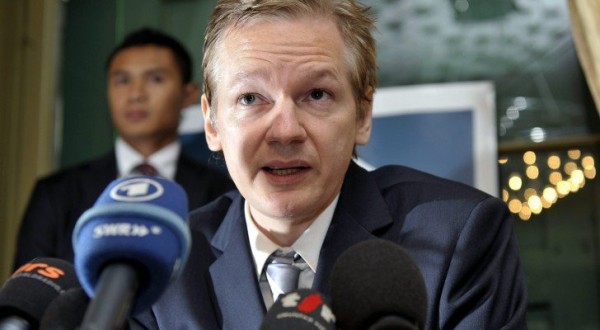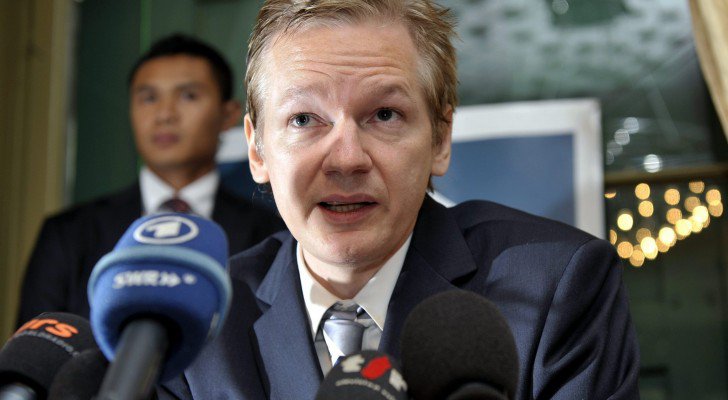
WikiLeaks founder Julian Assange has been seeking refuge for close to three years inside Ecuador’s Embassy in London where he has political asylum. Facing both investigations in Sweden and the US, he claims that he is doing well despite his circumstances.
Assange is wanted in Sweden for questioning on claims of sexual misconduct, however no charges have been formally filed against him. In the US, a secret grand jury is investigating him for his role in publishing a collection of leaked documents regarding the Iraq and Afghanistan wars as well as state department modes of communication known as cables.
And despite Assange’s asylum, WikiLeaks continues to disclose documents from leaked drafts of the British nuclear submarine whistleblower William McNeilly, and hidden information about a European union plan that seeks to use military force in order to curb the influx of migrants from Libya. Of the latter, WikiLeaks said, “The documents lay out a military operation against cross-Mediterranean refugee transport networks and infrastructure. It details plans to conduct military operations to destroy boats used for transporting migrants and refugees in Libyan territory, thereby preventing them from reaching Europe.
WikiLeaks has also published leaked chapters of the Trans-Pacific Partnership (TPP), which is a secretive trade agreement among twelve Pacific Rim countries, including the United States. It would allow them to cover 40 percent of the global economy. The agreement was reached just this past October, after seven years of negotiations.
But as these matters of economic concern continue to be negotiated amongst the countries, details continue to be hidden from the public while WikiLeaks discloses information, like the “Investment Chapter,” which discusses the US negotiators’ motive to allow corporations to sue governments if their laws disrupt future profits a company has declared. Assange says the plan could “chill” the approval of health and environmental administrations.
Amy Goodman of Democracy Now! sat down at the Edcuadorean Embassy in London for an exclusive interview with Assange to discuss the Trans-Pacific Partnership and the US debate of what WikiLeaks has revealed concerning the treaty.
“It is very well guarded from the press and the majority of people and even from congressmen. But 600 U.S. companies are part of the process and have been given access to various parts of the TPP,” Assange says of the partnership. “Essentially, every aspect of the modern economy, even banking services, are in the TPP.
And so, that is erecting and embedding new, ultramodern neoliberal structure in U.S. law and in the laws of the other countries that are participating, and is putting it in a treaty form. And by putting it in a treaty form, that means—with 14 countries involved, means it’s very, very hard to overturn.”
To provide an example of how corporations can sue governments, Assange provides this example:
What if the government or a state government decides it wants to build a hospital somewhere, and there’s a private hospital, has been erected nearby? Well, the TPP gives the constructor of the private hospital the right to sue the government over the expected—the loss in expected future profits. This is expected future profits. This is not an actual loss that has been sustained, where there’s desire to be compensated; this is a claim about the future.
And to put this idea into practice, he discusses how similar measures have already been taken to affect environmental and health regulation laws, including in Togo, Australia, and Uruguay, which are all being sued by tobacco companies in order to keep health warnings off of cigarette packages. “Maybe the government is too powerful, and companies should have a right to sue the government under various circumstances. But it’s only multinationals that get this right,” Assange says. “Now, it’s not so easy to get up these cases and win them. However, the chilling effect, the concern that there might be such a case, is severe. Each one of these cases, on average, governments spend more than $10 million for each case, to defend it, even successfully. So, if you have, you know, a city council or a state considering legislation, and then there’s a threat from one of these multinationals about expected future profits, they know that even if they have the law on their side, even if this TPP is on their side, they can expect to suffer.”
Written by Alexa Erickson of www.collective-evolution.com











Sign up on lukeunfiltered.com or to check out our store on thebestpoliticalshirts.com.